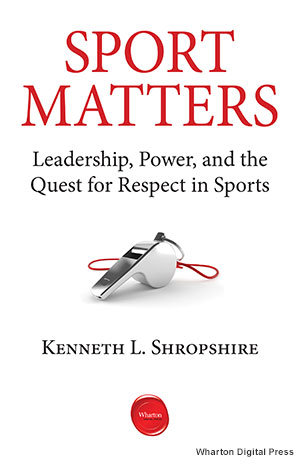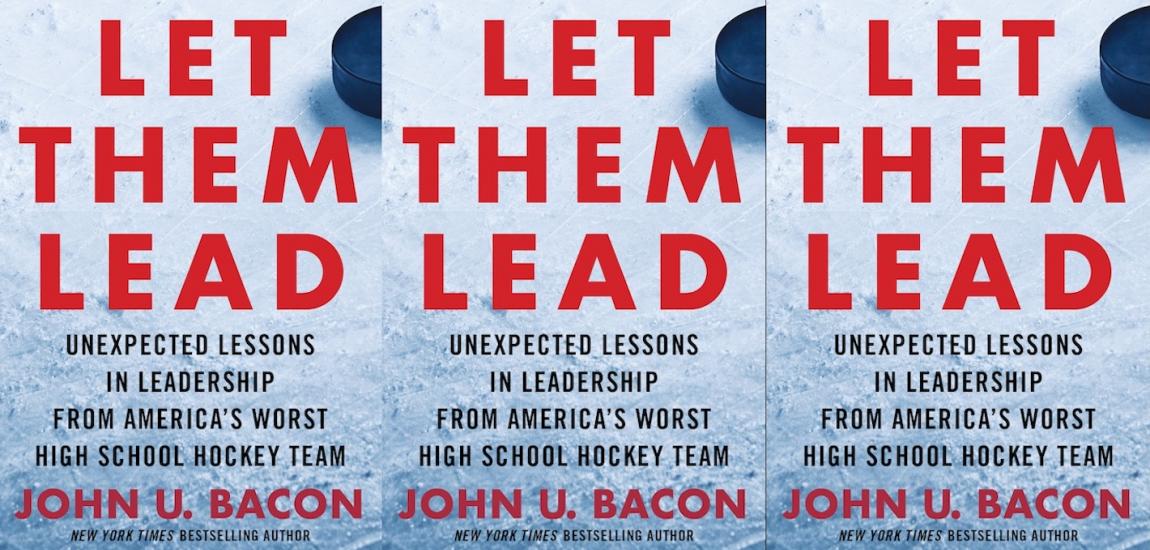Recent controversies involving Donald Sterling, Ray Rice, the Redskins name and the rights of NCAA athletes underscore the leadership challenges facing team owners, management, players and even fans. In Sport Matters: Leadership, Power, and the Quest for Respect in Sports, Kenneth L. Shropshire -- The Wharton School of the University of Pennsylvania professor of Legal Studies and Business Ethics and Director of the Wharton Sports Business Initiative -- takes a closer look at some uncomfortable truths.
Last month, on the heels of the 50th anniversary of the civil rights march to Selma, a video emerged of Sigma Alpha Epsilon fraternity members at The University of Oklahoma singing a racist chant. The university and national chapter of the fraternity acted swiftly by closing the chapter. Students and athletes at the university joined the protests. One of the more meaningful moments of protest was when the football team linked arms and stood in silence on the practice field, an appropriate response on such an important civil rights weekend.
This football team displays the type of leadership we should see more often from sports organizations when they encounter a serious lack of respect. Within the sports industry itself, we have been reminded again and again of the racism that continues to exist within sports -- and of the power sport has to make positive change. A persistent problem has been the use of offensive language, from the Washington Redskins' name to the Miami Dolphins bullying incident.
It has been nearly two years now since news broke that a Miami Dolphins player named Jonathan Martin had left the team. He did not leave because of a contract dispute. He did not leave because of injury. Rather, he left, he said, because he was being bullied. The idea and definition of bullying is complex even in the context of a schoolyard, but the Martin case made clear to the entire nation that nobody is immune from bullying --not even a 312-pound Stanford-educated black man playing professional football. 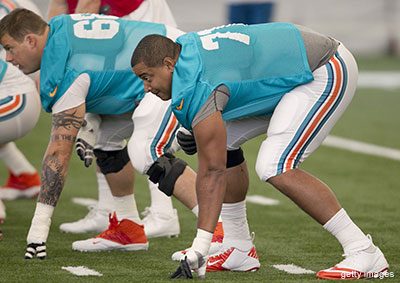 Society often creates stereotypes for bullying victims -- outcasts in the halls of high schools, for instance, or members of the lesbian, gay, bisexual, transgender, and queer (LGBTQ) community -- but here the victim was the towering Martin, an elite, powerful, and accomplished athlete who was nonetheless found by an investigator to have been tortuously bullied by three teammates, including a white man who claimed to be a friend, Richie Incognito. The victimization included verbal taunts against Martin personally and insulting and degrading language directed toward his family members. Regardless of schoolyard proclamations regarding sticks and stones, offensive language can have a powerful impact.
Society often creates stereotypes for bullying victims -- outcasts in the halls of high schools, for instance, or members of the lesbian, gay, bisexual, transgender, and queer (LGBTQ) community -- but here the victim was the towering Martin, an elite, powerful, and accomplished athlete who was nonetheless found by an investigator to have been tortuously bullied by three teammates, including a white man who claimed to be a friend, Richie Incognito. The victimization included verbal taunts against Martin personally and insulting and degrading language directed toward his family members. Regardless of schoolyard proclamations regarding sticks and stones, offensive language can have a powerful impact.
After the Dolphins matter came to light, attorney Ted Wells of Paul, Weiss, Rifkind, Wharton & Garrison conducted and published an investigation on behalf of the NFL. Though by no means the primary focus of the report, one standout finding was the use by Dolphins players of the word nigger -- specifically, the casual use of the word in this interracial setting. Nigger was hardly the only slur covered by Wells, however. His report also highlighted how slurs against people who are Asian or LGBTQ and disrespectful language toward women had become a part of the regular banter among the players in Miami.
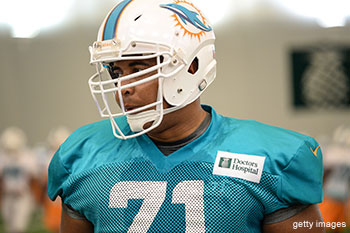
Ending the use of offensive language in day-to-day conversation is uniquely difficult. In part, that's because banning any type of language, offensive or not, is problematic. The NFL has found itself facing both praise and criticism for reportedly engaging in conversations about rules banning the use of the word nigger during games. But when this type of activity occurs, or when it is known to occur regularly, what can those in the ownership and management roles do to change a culture that finds little problem with the language in question? The question is only slightly more complex in the SAE situation where the racism strikes me as even more offensive with the added clear element of mean-spiritedness. The video of the offensive song brought to light a joyous usage of the word nigger absent a black audience to be offended. The offensiveness is somehow magnified because no audience was intended, like when the news media revealed other offensive verbal and action moments in sports in the past year, including those involving the likes of Donald Sterling and Ray Rice.
The Dolphins had in place a workplace conduct policy that was taken straight from the NFL handbook. And that was of course important. But the real key for the Dolphins was to act—to seize the leadership moment—once the issues surfaced. Of course, many observers wanted more than the shipping off of the two players primarily involved, including the firing of top management personnel for allowing this culture to develop in the first place. The team asked the league to conduct an independent investigation. The league responded by retaining Wells. And then team owner and chairman Steve Ross issued a statement amplifying the leadership message:

The Wells Report noted that Ross went further in stating, "There will not be any racial slurs, or harassing, or bullying in [the Dolphins] workplace, in that locker room and outside the locker room." So the tone was set at the top. But what of the players?
Although not highlighted in the report, one of the difficult issues the Dolphins brought up was the same issue the 1960s comedian-activist Dick Gregory identified years ago and the same issue that continues in popular culture today -- the regular use of the word nigger by African Americans in interactions ranging from casual to the most public of settings. It is striking how this evolution has occurred, and equally striking how much conflict there is about what the "right" path forward is. A subtext in the conversation is whether blacks alone have the right to use the word, and the NFL offers context for that debate, too. In the lead-up to the 2013 season, Philadelphia Eagles wide receiver Riley Cooper, a white man, was caught on tape using the word while attending a concert. His case, and the Eagles' handling of it, lingered in the news for weeks, and it continues to hang over Cooper today. Issues were elevated in the Dolphins incident, I contend, because one player was white and one was black. Had this involved two black players in the key role, this may have been much less of a story. It is the race of the perpetrators, too, that clearly makes the SAE event so much more offensive: the offenders were all white.
Issues of racism are complex both in and out of sports and continue to be a work in progress for our society. There is a growing recognition of the impact that the Sports Power Matrix -- sports leagues owners, managers, players, and others -- can have beyond sport. The optics of greater respect within sports can create greater tolerance and civility in other societal sectors as well, which is just what the University of Oklahoma's football team achieved. In the university power matrix, the athletes have much more power than they tend to assert.
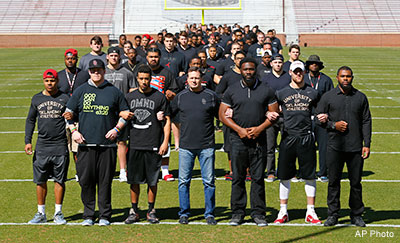
In sports and in society, leadership requires quick and decisive action. Once information is vetted, swift, decisive action should take place. However, such action must include due process for the parties involved: athlete, owner, or whomever the stakeholder. The actions of Ross make clear the need for substantial follow-up as well. They also show that, as in any setting, leadership moves will not always be roundly applauded and will be viewed by many to fall short.
But proclaiming an act "wrong" or even punishing the culprit is not all that can be done. Resources should be committed to fully addressing issues of respect. These actions can and must be led by team ownership, or in the case of SAE, by the university and the fraternity national headquarters, but we must all do our part. So we are reminded once again, as we commemorate Selma, much more remains to be done.
-- Adapted from Sport Matters: Leadership, Power, and the Quest for Respect in Sports by Kenneth Shropshire. Copyright 2015. Available wherever ebooks and paperbacks are sold online. Reprinted by permission of Wharton Digital Press. Shropshire is the David W. Hauck Professor at the Wharton School of the University of Pennsylvania and the Faculty Director of its Wharton Sports Business Initiative and Professor of Africana Studies. Shropshire hosts The Business of Sports show on Sirius XM Radio, and he teaches the Coursera course The Global Business of Sports, which has reached 30,000 global students. He is also Special Counsel to the global law firm Duane Morris LLP. He has consulted with the NCAA, Major League Baseball, National Football League, and the United States Olympic Committee. Follow him on Twitter @KenShropshire.

